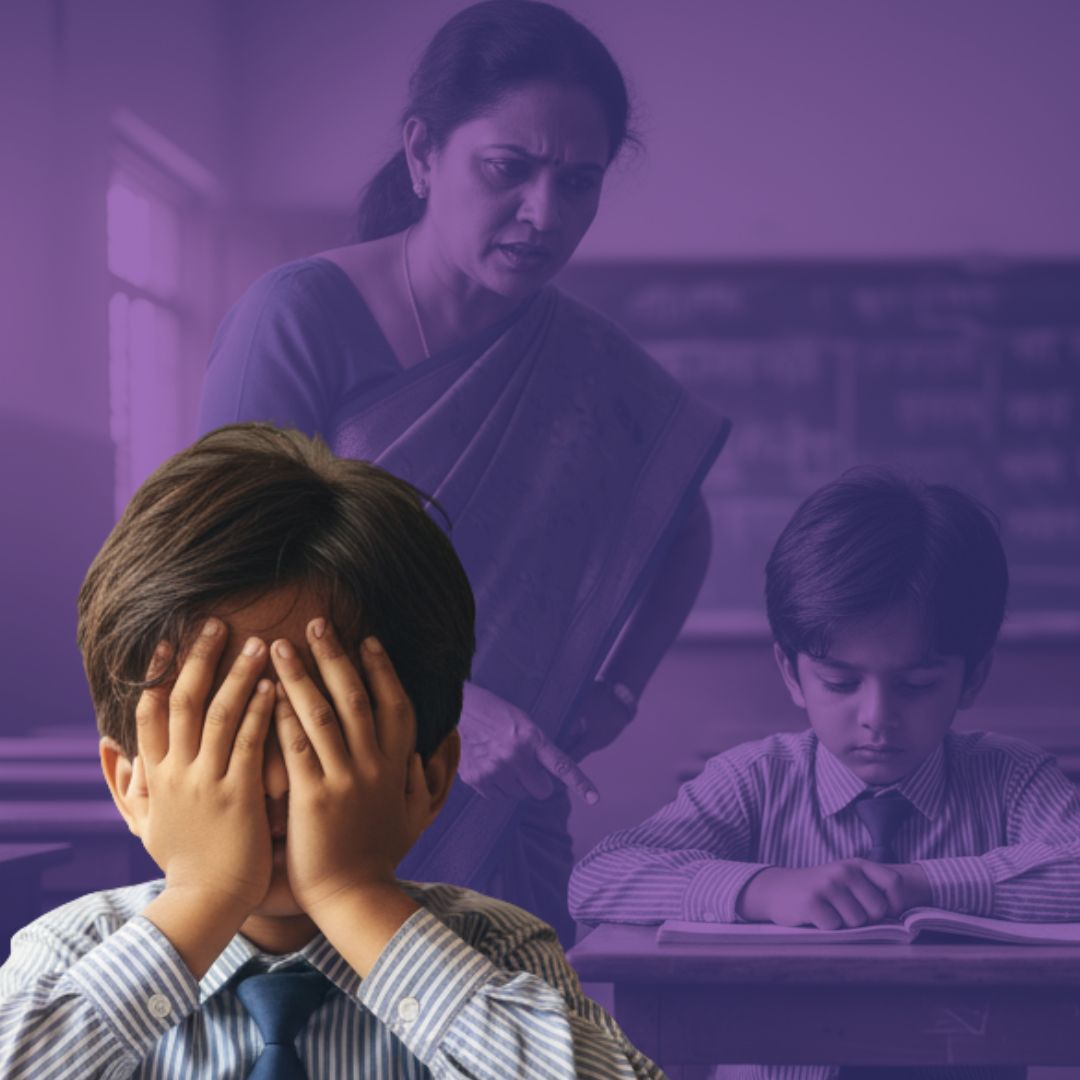A deeply disturbing case of child abuse has emerged from a private school in Panipat, Haryana, igniting widespread outrage and raising urgent questions about child safety in educational institutions. Videos surfaced on social media showing a seven-year-old Class 2 student mercilessly tied with ropes and hung upside down from a window by the school driver as punishment for not completing his homework.
The boy’s mother, Doli, alleged that principal Reena instructed the driver to punish her son, who had only recently joined the school. The driver, Ajay, was also seen slapping the child, making abusive video calls to friends while assaulting him, and uploading the footage online.
In a second video, principal Reena was filmed slapping and beating other young children in front of classmates. The principal later defended her actions, claiming the children had misbehaved and that she had informed their parents beforehand. However, parents contradicted her by revealing that children were sometimes forced to clean toilets as punishment, practices that violate Ministry of Education guidelines prohibiting corporal punishment.
Both principal Reena and driver Ajay have been arrested, and police have registered cases under the Juvenile Justice Act and relevant sections of the Indian Penal Code. An investigation is ongoing amidst calls for justice and stringent action against the accused.
Parents’ Trauma and Community Outrage
Doli expressed her heartbreak and disbelief over the inhumane treatment her young son endured. The ordeal has sent shockwaves through Panipat’s community and beyond, where parents and child rights activists condemned the cruelty and demanded stricter enforcement of child protection laws.
The incident has sparked a broad outcry on social media and in local forums, calling for systemic reforms and strict punitive measures against schools and staff that violate students’ rights. Authorities have responded by emphasizing the seriousness of the offense, with Panipat police assuring strict action and continuous monitoring to prevent such cases from recurring.
The Haryana Education Department has gone a step further by sealing the private school involved, highlighting the gravity with which the government views the case.
Legal and Policy Perspectives
The Panipat case underscores the persistent challenges in eradicating corporal punishment and abuse in Indian schools despite clear legal frameworks. The Juvenile Justice Act, 2015, along with the Right to Education Act and Ministry of Education guidelines, strictly prohibit physical punishment of students. Yet enforcement remains inconsistent, and incidents like this reveal systemic vulnerabilities in school monitoring and accountability.
Legal experts stress that corporal punishment is not only illegal but detrimental to children’s physical and mental health. Activists argue for stronger oversight mechanisms, mandatory child safety audits in schools, and the establishment of accessible grievance redressal systems for parents and students. The case has also revived demands for awareness campaigns on child rights and teacher training focused on positive disciplinary techniques.
The Logical Indian’s Perspective
This harrowing incident is a betrayal of the core purpose of education – to nurture, protect, and empower children. Violence and humiliation have no place in schools, which must serve as safe, encouraging environments where every child’s dignity is respected.
The Logical Indian advocates for urgent reforms that enforce zero tolerance towards any form of abuse, comprehensive child protection policies, and community involvement in school governance. We must foster dialogue grounded in kindness, empathy, and respect, aiming for a future where education uplifts rather than harms.












